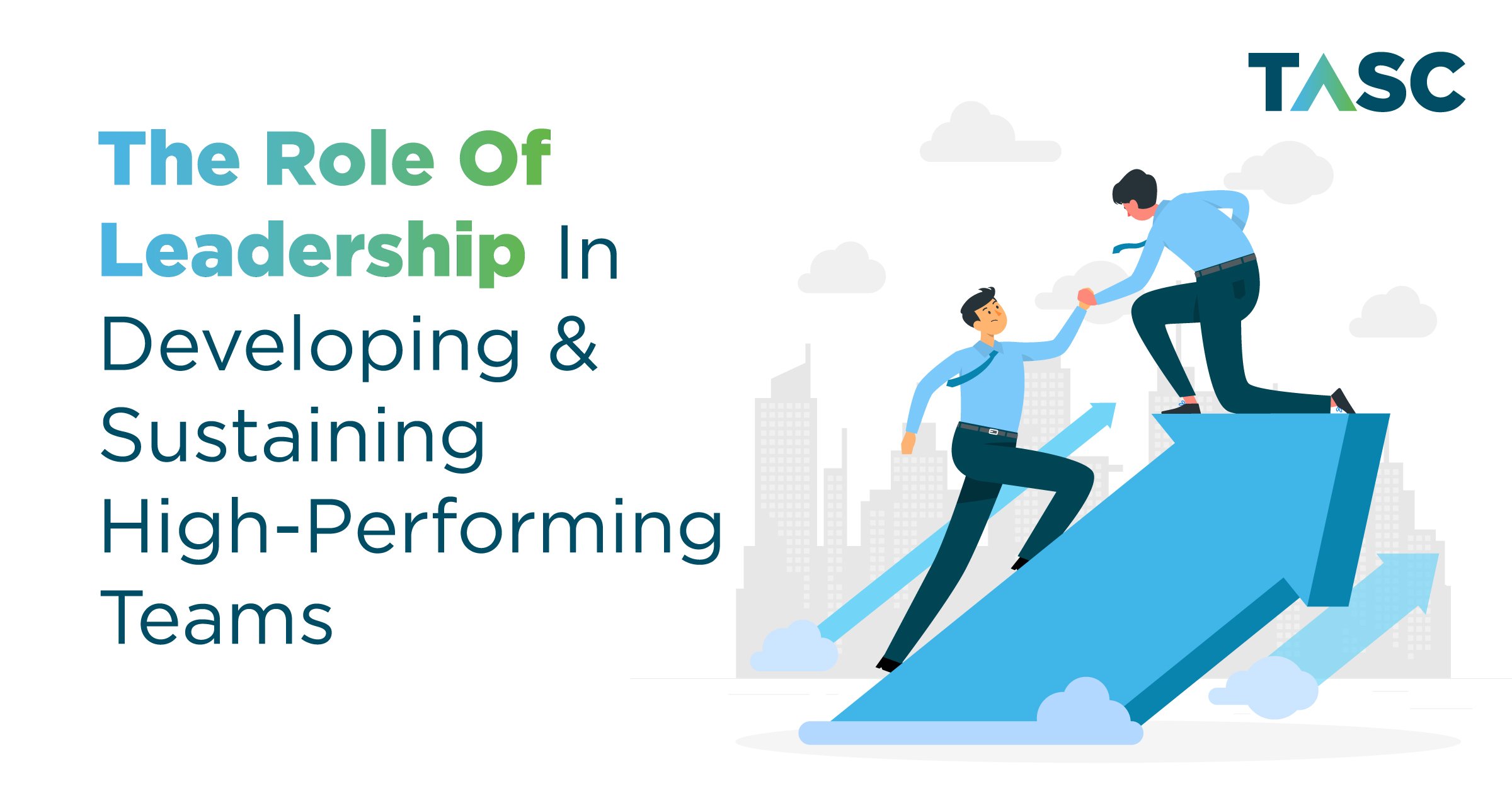The Role of Leadership In Developing & Sustaining High-Performing Teams
The significance of effective leadership in developing and sustaining high-performing teams cannot be overstated. It is widely acknowledged that a thriving high-performance organisation relies heavily on the competence and acumen of its leader, who must navigate through a dynamic and intricate landscape. The multifaceted nature of the role necessitates leaders to adapt continuously, wearing different hats and learning from their experiences.
Research underscores several pivotal responsibilities of high-performance leaders, including driving urgency and direction within their teams, grooming future leaders, and seamlessly aligning the company's vision and values with strategic pursuits.
In today’s blog, we will delve into the intricacies of leadership's role in cultivating high-performance organizations. We will explore how exceptional leaders foster and maintain teams that consistently deliver outstanding results.
If you’re ready, let’s start this journey of uncovering the nuances of leadership and its impact on fostering a culture of excellence and achieving remarkable success within organizations.[
- Fostering Empowerment Through Purpose-Driven Work Processes
The art of designing efficient work processes takes centre stage in successful team management. A proficient leader navigates the intricacies of hiring, training, motivating, assessing, collaborating, delivering, and fostering a learning culture.
The ultimate goal is not just achieving success but also empowering individuals to unlock their true potential. It entails creating intuitive, transparent, and non-intrusive work processes that allow employees to deliver their best performance without feeling constrained by authoritative structures.
What Can Leaders Do?
Embrace purpose and trust-driven leadership models, leaving behind command-based approaches. By shifting the focus from power-based structures to development-based practices, leaders can encourage employees to embrace self-management, self-monitoring, and accountability within the work processes. The key lies in enabling individuals to recognize the significance of their roles in the grand scheme of things, thereby fostering empowerment and ownership at every level of the organization.
- Nurturing A Thriving Company Culture
In high-performance organizations, the responsibility of building and upholding company culture lies firmly in the hands of its leaders. Through a combination of direct actions and subtle influences, these leaders shape and sustain the organizational culture. A paramount task for them is to establish a strong foundation that upholds the company's values, ensuring fairness, transparency, empowerment, and a stimulating environment for all employees and managers. A successful leader recognizes the significance of cultivating a respectful and inclusive culture, fostering independence and authenticity in their workforce above all else.
What Can Leaders Do?
Company culture is an embodiment of acceptable workplace behaviours and practices. In order to foster a healthy culture, leaders and managers must wholeheartedly endorse the company's values and vision. Top-tier leaders play a crucial role in translating the company's strategy, vision, and culture to every level of the organization by genuinely committing to them. Their dedication and alignment with the core principles set the stage for a thriving and vibrant company culture that nurtures growth and success.
- Empowering Success Through Values & Goal Alignment
Leadership management should focus on one fundamental truth – when individuals thrive, so does the organization. Accomplished leaders understand this axiom and work diligently to align the values and goals of their employees with the broader organizational objectives. By forging this crucial connection, they empower each team member to discover their unique role in the grand scheme of things.
Moreover, these leaders play a pivotal role in future-proofing their organization by encouraging a continuous pursuit of learning, where employees acquire new skills and knowledge, thereby staying relevant in their respective domains.
What Can Leaders Do?
The key lies in equipping middle managers with the skills to comprehend the goals and aspirations of their teams while providing unwavering support to employees on their learning journeys. Additionally, fostering an environment where career progression and development plans are encouraged allows employees to envision their growth path.
Backing these aspirations with the necessary resources ensures that employees can confidently pursue and realize their objectives, leading to a harmonious alignment of individual and organizational success.
- Cultivating Value & Long-Term Success
Leaders go beyond the pursuit of numbers and territorial gains in high-performance organisations. They recognize that authentic leadership lies in continuously enhancing and reimagining existing processes, thereby creating lasting value.
A passionate commitment to collaborative efforts drives these leaders as they strengthen the very foundation of their business. Moreover, they understand the criticality of nurturing and preparing future leaders, ensuring the company's sustained success and the perpetuation of their successful practices.
What Leaders Can Do?
The key to achieving value and sustainability is in prioritizing human development above all else. By fostering an environment that encourages personal and professional growth, leaders empower individuals to flourish both as human beings and professionals.
Cultivating authenticity among employees can nurtures trust and openness, fostering a culture of innovation and experimentation. In turn, this open and inclusive workplace allows people to contribute their unique perspectives, fuelling creativity and driving the organization towards long-term success.
The Crucial Roles of Empowering Managers
Managers play a pivotal role in empowering their workforce. Shackleton highlights six essential roles serve as the pillars of effective leadership and team development –
- Mutual Respect and Belief - A successful manager believes in their team's capabilities, identifying strengths, addressing weaknesses, and nurturing growth with unwavering faith.
- Confidence as Facilitators - Empowering managers facilitate their team members to take on greater responsibilities and new challenges. They exude confidence, knowing that empowering their team does not threaten their own leadership position.
- Emphasis on Training - Committed to the growth of their team, managers focus on enhancing skills and expertise by providing ample opportunities for skill development and training.
- Establishing Clear Boundaries - Skilful managers set clear boundaries for team members, outlining roles, responsibilities, and freedoms, ensuring everyone understands their position within the team.
- Facilitating Information Flow - Empowering managers ensure the team receives relevant and necessary information, empowering them with the resources they need to thrive.
- Progress Feedback - Monitoring the entire workflow, managers provide valuable feedback to the team, highlighting areas for improvement and celebrating strengths tied to each assignment.
Wrapping Up
In high-performance organizations, adept leaders drive passion, innovation, and agility into the business's very essence. By eschewing control-driven models, they embrace a mentoring and visionary role, positively influencing their people, industry, and customers.
With their transformative leadership, these visionaries inspire excellence that extends far beyond organizational boundaries, empowering individuals to reach their fullest potential.





